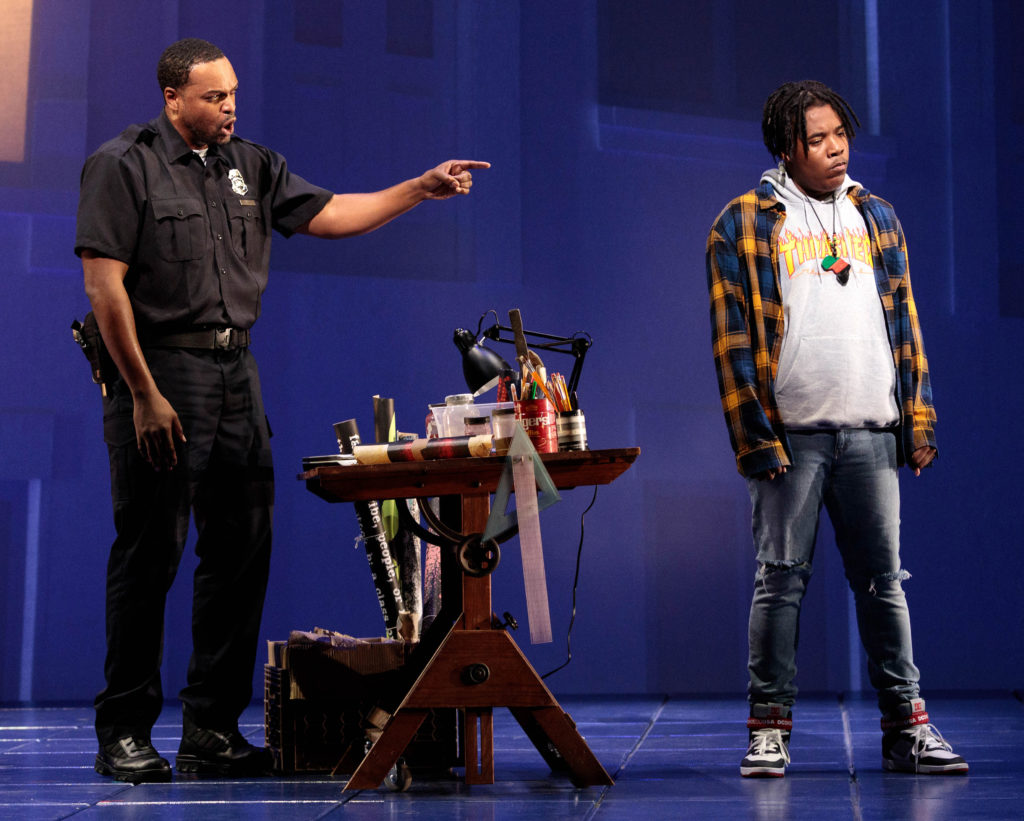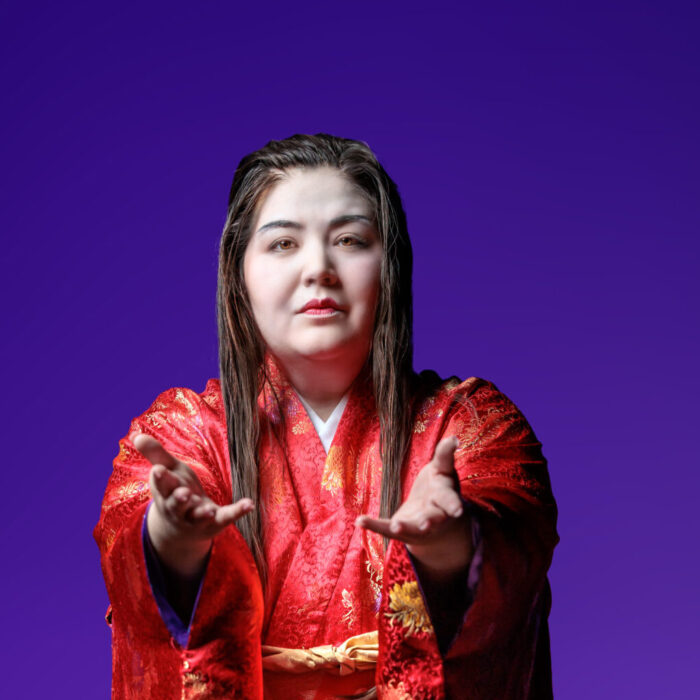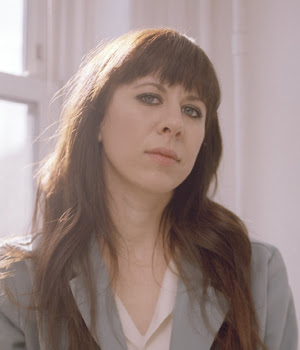In partnership with New York’s flagship classical radio station, WQXR, Lincoln Center’s Mostly Mozart Festival kicked off on Monday, August 10.
The annual summer festival has been a fixture of the New York art scene since 1966, and the organization forged a path to keep the tradition in a safe way as COVID-19 continues battering the United States.
This Friday, August 14, the Festival will showcase a documentary about “Blue,” a new opera composed by Jeanine Tesori with libretto by Tazewell Thompson.
In June, The Music Critics Association of North America (MCANA) named “Blue” as the winner of Fourth Annual Award for Best New Opera. The work had its premiere at the Glimmerglass Festival in July 2019 and tells the story of an African American couple residing in Harlem, New York City. The couple’s activist son inspires and alarms them; his mother struggles with fears about his future, while his father, a “Black man in blue,” grapples not only with his own identity as a police officer but also with how he should prepare his son for the realities of 21st-century America. Tragedy strikes and the couple must lean on their community and church to pull them through.
“Blue” couldn’t be more timely.
The deaths of Breonna Taylor, Ahmaud Arbery, and George Floyd brought the simmering pot of police brutality and racial injustice to a boil in the U.S. and around the world.
The press release issued by MCANA at the time of the announcement stated that “‘Blue’ was selected as the recipient of this year’s award in mid-March [prior to the killings of Taylor, Arbery, and Floyd], and we at MCANA are proud to be announcing the award now, in this difficult time, when many of its planned productions around the country had to be canceled, and because incidents like the one at the center of the opera continue to occur. We hope that this important work will see many more performances in the future.”
Lincoln Center’s determination to take the Mostly Mozart Festival virtual provides an outlet for audiences to hear selections from the opera until theaters open once more. MCANA’s hope of exposing more audiences to the Tesori/Thompson collaboration is coming true, even in the midst of a pandemic.
As part of the documentary, commentary will be presented by composer Jeanine Tesori, librettist/ director Tazewell Thompson, and musicologist Naomi André. The opera was scheduled to have its New York premiere this summer.
OperaWire connected with the principal cast of “Blue,” bass Kenneth Kellogg as The Father; mezzo-soprano Briana Hunter as The Mother; and tenor Aaron Crouch as The Son, and discussed the impact the events of late spring and early summer have had as they consider the opera through the lens of the Black Lives Matter movement.

Credit: Karli Cadel
OperaWire: “Blue” premiered prior to the deaths of Breonna Taylor, Ahmaud Arbery, and George Floyd. While these are just three in a long, sad history of Black lives ending too soon, their deaths sparked a massive response, and hopefully, lasting change. Has the way in which you think about the characters changed from when it opened at Glimmerglass in July 2019?
Kenneth Kellog: The way I think about the character hasn’t changed but I think what has changed is how the audience receives these characters. I knew and carried the emotional weight of playing the Father from my awareness of the deaths before Breonna, Ahmaud, and George and my own personal experience. I think with the latest deaths the wider public is more apt to listen with a greater level of empathy.
Briana Hunter: I haven’t had the chance to test drive the role on stage live, so I’m not sure that’s answerable yet. I will reiterate something I said in my Opera News Instagram takeover, these are conversations and grievances and emotions I’m used to having, it’s a very strange feeling to actually be heard.
In the breakdown scene, the mother says “uselessly I water this plant of hope / for we are not one of God’s favorites / please God see me, hear me.” The pain is usually experienced in a void. Now that the world has heard the cries of a black man begging for his mother in his final moments. I feel people not being able to look away. This line, “see me, hear me” has even more significance, it belies the undercurrent of the moment, we are dying, we are losing our sons and daughters, please pay attention, please stand with us, please make sure justice is done.
Aaron Crouch: I wouldn’t necessarily say that the way I think about The Son changed. However, I would say that I am angrier because of it. I think that my ability to see these young people killed in America gives me the fuel to play this character, who would be marching for the justice of these victims, with more vigor and tenacity.
OW: What do you want the audience to take away from “Blue” given where the United States stands as a nation one year after the premiere?
KK: I want the audience to see that the family in this opera is really no different from their own in that they work for the best and want the best for themselves and their community. The Mother runs a restaurant with love and pride for her ancestral cuisine and its ability to connect people. The Father is a police officer because we want to ensure a safe environment for his community. The son is a college-bound teenager full of ambition to change the world. What makes them different are the fights they must take on based on the color of their skin, on a daily basis, which prevents them from living full lives.
BH: I hope they have a deeper connection to humanity and our shared fate. To bear witness to this family’s journey, and to leave asking themselves what they can do to contribute to solutions. Black people need true allies who are willing to take on these issues as their own. I hope this closes the space between us all. That we begin to mourn these lost lives as if they are our own family because, in the grand scheme of things, they are.
AC: Unfortunately, there are many people in America who do not fully grasp the concept of police brutality being something that is a horrible problem in our country. I mostly want those people to come to the realization that this problem is killing our young Black men and women. I would also love for people to see this as a family story and not just “an opera about police brutality.” I think Tazewell was genius in not giving these characters specific names. It really allows any viewer to be able to put themselves in the shoes of these characters.
OW: Kenneth, you sing the role of The Father, a police officer. What were some of the things you had to tap into for you to bring your character to life?
KK: I was a new father at the time I was approached to play this role so all of those emotions and discoveries about myself as a dad were fresh and easy to access. Some of the conversations my wife and I had were right there in the libretto. What I needed to tap into was the idea of being a police officer. And, oddly enough, I had to get comfortable with being myself up there. It’s not often that you get to actually play a Black Man in America, so you can detach a bit and transport for ideas about yourself playing this role. I had to get comfortable tapping into the multiple layers of things Black men do to deal with trauma and still function. Bringing that to the stage, in an honest and vulnerable way was taxing.
OW: Did you have certain attitudes toward the police that you needed to overcome in order to fully inhabit the character?
KK: I didn’t have the best experiences growing up with police, so I had to wrap my mind around portraying one without bringing all my personal baggage to the character. Police were this “outside” entity that came into my neighborhood to impose and not protect. I had to find the humanity in them behind the badge, duties, and uniform. I approached being a police officer from the perspective of being a father who wanted to do whatever he could to protect his son.
OW: Briana, in the opera, you are The Mother. The Mother’s friends are troubled by her marrying a police officer, and show concern that she is pregnant with a boy. They encourage The Mother to terminate the pregnancy. Yet, you don’t follow their advice. Placing yourself back into the role, to what hope does The Mother hold that things will be different for her son, that tragedy wouldn’t visit her household?
BH: This is interesting, because folks really latched onto those lines very literally, like they told her to get an abortion. I don’t receive it that way. To me it’s akin to when we say “throw everything away,” or “burn it to the ground.” I’m not actually running out to commit arson, but I’m saying we need to start over. It’s to emphasize the very ominous point that this will not end well.
They behave very much like the Fates in Greek Tragedy. They know the fate of black boys in this country and want to spare her that pain down the road. It doesn’t take a genius to prophesize that as we know. It’s women who have grown up knowing the stories from their families about Emmett Till and countless others whose names we don’t know, lynchings from trees and now in the streets.
The Mother knows this, and it’s her optimism and her faith that makes the end that much more painful. She is someone who believes people can be better. She is a healing and loving presence. She is someone for whom her girlfriends drop what they are doing, she is someone who puts love into her food and her job, she is smart and accomplished. She is madly in love with her husband. Even when her son and husband fight she is the one to restore the balance. She has achieved a level of success and happiness, in many respects, the American dream. It further proves the point that it can happen to any of us, no matter how much we play by the rules.
OW: Having inhabited the role of The Mother, do the deaths of Black men and women affect you differently now? Do you find yourself empathizing in a new way?
BH: I think inhabiting the role taught me I’ve always empathized and been affected. It brought a lot of the emotions I have buried for years to the surface. To some extent, we have all done this, it’s incredibly painful to be awake to trauma. That being said, we must be aware, or else change is not possible.
At the funeral, The Mother finds it within her and her deep faith to give her son over to God, she finds some comfort. This gesture, to me, is not closure, but a redistribution of energy. Now it goes, not to the futile fight for her son’s life back, but to the fight to save other mothers the same heartbreak. The continued fight for systemic change in this country.
In this way, I don’t think she abandons that hope that is within her at the outset of the opera. So I don’t think I empathize differently, but I think I take the call to action more seriously, to respond to each death as if it were my own child. This is what we all need to do.
OW: Aaron, The Son resents that The Father is a police officer; your character thinks it’s pathetic for a Black man to wear the blue uniform. What angers The Son most about The Father’s career choice?
AC: The Son is a very young and intelligent activist in his community. He fights against the injustices that Black people have experienced due to the police force. I am sure that he feels like it is very hypocritical of The Father to be a Black man who sees all of the horrors of police brutality and decides to join the antagonizers.
OW: If The Son had one wish for The Father, what would it be?
AC: I think The Son just wants his father to see that he is fighting for a good cause and wants to be supported and loved. Personally, I feel like there are other issues that they both have that aren’t explicitly written in the story. There is so much push and pull between the two of them in their big argument. I believe that The Son’s entire fight is just a cry for help from his dad.





